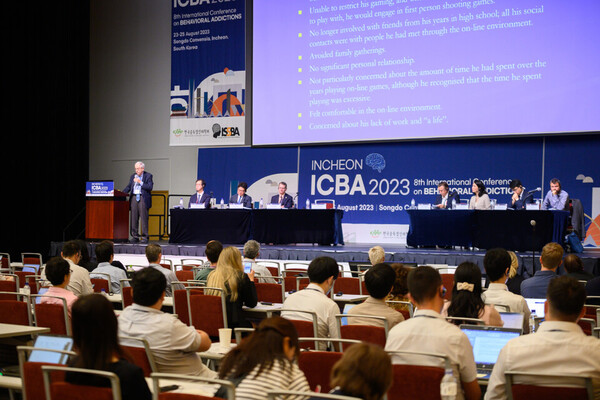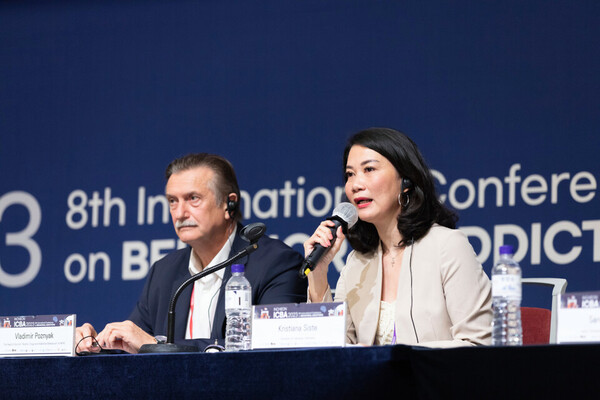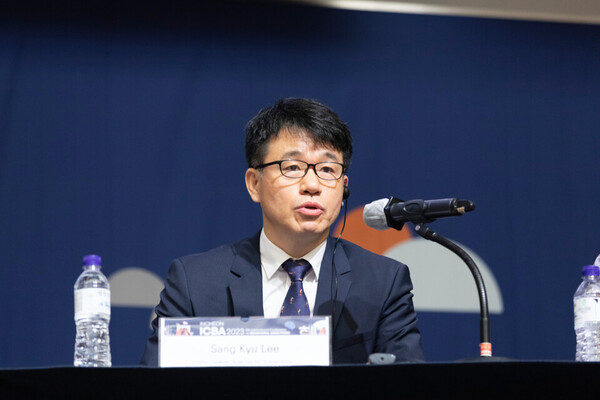It's been more than three years since gaming addiction became a "disease." There are still no treatments or systems in place. There are few attempts to deal with gaming addiction as a disease or gaming use disorder, and there is a lack of societal understanding. Instead, some criticize it as “pathologizing” personal freedom.
However, the international healthcare community sees gaming disorder as an "existential risk" that the international community needs to address together.

At the 8th International Conference on Behavioral Addiction (ICBA)’s World Health Organization Session, held Aug. 23-25 at the Songdo Convention Center in Incheon, experts explored ways to advance public health science to address the problem of behavioral addiction. The event was co-hosted by the Korean Academy of Addiction Psychiatry and the International Society for the Study of Behavioral Addiction (ISSBA).
Dr. Vladimir Poznyak, WHO Director of Addiction, said, "Behavioral addiction is a real-world risk. We need more research to develop evidence-based treatments and diagnostic guidelines."
He also emphasized that “governments, healthcare providers, and professionals need to take action together” to ensure that standardized diagnostic and treatment services are available worldwide. In 2019, the WHO included gaming use disorder as a "disorder due to addictive behavior" in the 11th revision of the International Classification of Diseases (ICD).
During the panel discussion at the WHO session, countries shared their experiences in addressing behavioral addiction.
Switzerland has been building a support system for behavioral addictions since 2012, led by the Federal Council. The efforts of experts date back to the early 2000s. The emphasis on treatment, prevention, and education in addiction led to political action.
"In 2015, we developed a national addiction strategy. It is based on early detection and intervention of addiction risk," said Professor Joel Billieux of the University of Lausanne. “We focused on keeping individuals at a safe stage without reaching addiction levels.”
Many healthcare institutions, including the University of Lausanne and the University Hospital of Geneva, offer outpatient treatment programs. Treatment is based on cognitive behavioral therapy (CBT) and family therapy. Treatment for behavioral addiction is covered by national insurance.
In the United States, the problem of behavioral addiction is centered around gambling. Some states, including Connecticut and Massachusetts, support gambling addiction prevention and treatment services. But national efforts are lacking, according to local experts.
"The National Institutes of Health (NIH) has offices for alcohol and drugs and mental health relationships, but not for behavioral addictions," says Dr. Marc Potenza, a Yale School of Medicine professor.
Health insurance coverage for "addiction" is also limited. Training specialized healthcare workers to treat it is also a challenge. There are no effective medications for gambling. The same is valid for gaming use disorder.
"Recent studies have shown that more than 95 percent of adults with gambling disorders have at least one co-occurring mental illness," Professor Potenza said. “When patients with anxiety or mood disorders are treated with medication, their gambling disorder can improve.”
However, most people with behavioral addictions still do not receive specialized medical care, Potenza said. This leads to repeated hospitalizations and further deterioration of their condition. "We need to train clinicians in empirically validated methods to treat behavioral addiction," he added.
‘Pathological gaming addiction is reality, and early intervention is essential’

Experts said they understood the concern that behavioral addiction pathologizes even normal behaviors. Still, problems like gaming disorder are now an "unavoidable reality."
"I understand the concerns, but the harms of excessive gaming are already being seen in extreme cases, such as death from blood clots," said John Saunders, a professor at the University of Queensland in Australia. "Clinical professionals are seeing the effects in the field, including refusal to go to school, extreme conflicts with parents, and isolation.”
Gaming use disorder is a diagnosis that specialists apply to people who are exhibiting such severe functional impairment. It's hard to disagree that it's overly pathologized, Professor Saunders noted.
Kristiana Siste, a professor at the University of Indonesia, said “overdiagnosis” is preventable with the introduction of ICD-11. According to Siste, Indonesia has 12 percent of its population at risk of gaming addiction.
"Diagnosing with ICD-11 behavioral addiction criteria separates most healthy gamers from those who need help. By detecting those who need help, we can speed up the process of diagnosing full-blown gaming addiction. It also prevents ‘misdiagnosis,’” Professor Siste said.
On the other hand, the entertainment value of gaming should not be overlooked, he emphasized, adding that the goal of gaming addiction treatment is not to ban gaming altogether but to promote healthy, self-regulated gaming.
“We also need to work on reducing the stigma of behavioral addiction," Siste said.
Korea is not a clean country for behavioral addiction

Korea, the host country of this year's ICBA, has also seen the rapid rise of addiction as a social problem. According to the 2021 Mental Health Survey, 5.9 percent of the population is at high risk of gaming addiction. This number rises to 18.3 percent for those aged 18 to 29. The government is investing in gaming addiction prevention education.
However, like most countries, the related infrastructure is not well-equipped to address addiction. There are no clinical guidelines for assessing or treating gaming disorders.
"We need to strengthen procedures to accurately assess and diagnose behavioral addiction and create an infrastructure for early prevention and treatment services," said Dr. Lee Sang-kyu, special director for the treatment system at the Korean Academy of Addiction Psychiatry and professor of Hallym University Chuncheon Sacred Heart Hospital. "The government should work organically across ministries, maintain policy consistency, and systematically approach behavioral addiction issues."
He also emphasized the need for international cooperation on behavioral addiction issues, including gaming use disorder.
"Countries need to secure and share long-term research and data on gaming addiction. This is essential to understand the problem's impact better and set the agenda," Director Lee said. "With this understanding, we can continue to improve policies and services."

